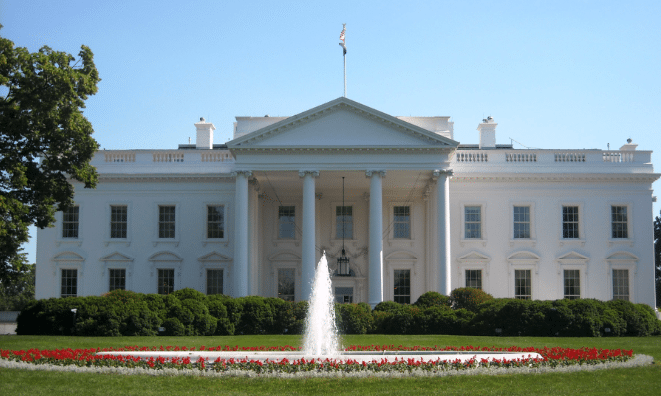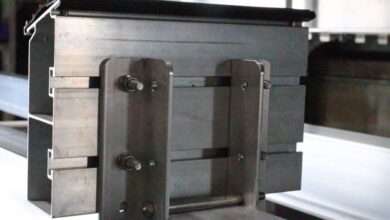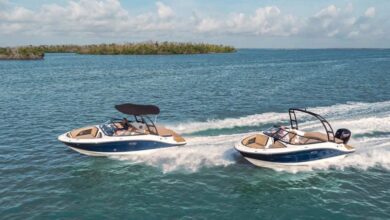NMMA opposes new recreational boating industry tariffs

The National Marine Manufacturers Association is sounding a new and urgent alarm on the Section 301 tariffs announced last week by the Trump Administration.
The 25 percent tariffs on approximately $50 billion worth of select Chinese products include nearly 300 marine-related parts.
“The U.S. recreational boating industry – a $39 billion industry that supports 650,000 American jobs – experienced another setback due to the Trump Administration’s actions on trade,” said NMMA President Thom Dammrich. “The announcement on 301 tariffs once again puts our proud, uniquely American-made industry at the mercy of bad trade policies that are piling up on top of each other. Collectively, these tariffs are causing the price of raw materials and marine parts to rise rapidly and stifling U.S. boat exports.”
The Section 301 tariffs compound prior trade actions that are already harming the American recreational boating industry, Dammrich explained.
From Section 232 and Section 301 tariffs, to countervailing and anti-dumping duties, our industry is under assault on multiple fronts. These actions are already upsetting global markets and hurting American consumers, businesses, and workers.
“The industry is also facing retaliation from our largest trading partners, including the European Union, which formally approved a 25 percent tariff on U.S. boats,” Dammrich said. “Canada and Mexico are also applying 10 and 15 percent tariffs on recreational boats respectively, making ours the only recreational industry singled out by all three jurisdictions.”
Canada, the EU, and Mexico account for 69 percent of annual U.S. boat exports. Because of these tariffs, dealers in Canada and the EU have already started to cancel orders.
The recreational boating industry has rebounded to pre-recession sales over the past 10 years, Dammrich said. Unfortunately, the Trump Administration’s counterproductive policies are jeopardizing the strong, steady growth the industry has been experiencing.
“The marine manufacturing industry relies on free and fair trade,” Dammrich said. “We recognize the need to deal with unfair trade practices by the Chinese, but the actions undertaken by this Administration will hurt U.S. manufacturers more than help them. Nobody wins in a trade war. But U.S. manufacturing – more specifically, the recreational boating industry – will suffer. We need this Administration to recognize the harmful effects of its current direction and focus on solving the problems facing Americans rather than making them worse.”
President Trump needs to hear from the industry about how harmful these tariffs are. NMMA encourages stakeholders to take action and tell the president to make a deal that immediately withdraws these tariffs.
The final list of Chinese products subject to a 25 percent tariff (Section 301) contains nearly 300 marine products, including engines and navigational equipment.
These components are incorporated into the majority of recreational boats and will impact the entire industry. For some products, the additional cost to the consumer would be approximately $2,000.
These tariffs are compounded by the Trump Administration’s 10 percent tariff on all aluminum imports (Section 232) and countervailing and pending anti-dumping duties on common alloy aluminum sheet. As a result, the global price of aluminum has already increased by 20-30 percent.
Critically, common alloy aluminum sheet is a primary material used in 44 percent of new boats built in the U.S.
These boats represent 117,000 new powerboat sales each year, and account for $3 billion in retail sales. Together, the countervailing and anti-dumping duties on this product are expected to total no less than an estimated 31 percent, and potentially in excess of 113 percent.
Canada, Mexico, and the European Union (EU) have already defined the products that will be the targets of retaliation in response to Section 232 tariffs. All trading partners have included various types of recreational boats on their lists.
The retaliatory tariffs on U.S. recreational boats, which are already resulting in order cancellations, are listed here:
- Canada – 10 percent, takes effect on July 1, 2018;
- Mexico – 15 percent, already in effect;
- EU – 25 percent, takes effect on July 2, 2018.
Ninety-five percent of boats sold in the U.S. are made in the U.S., meaning these sales benefit American businesses and workers alike.
For more information, please contact NMMA Senior Vice President of Government and Legal Affairs Nicole Vasilaros or NMMA Director of Federal Affairs Lance West.






Good article. Encouraging that the NMMA is keeping the pressure on Washington at this critical time.